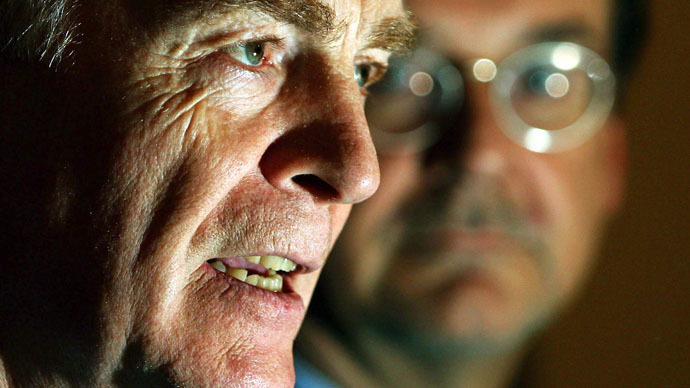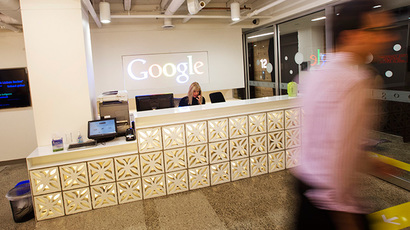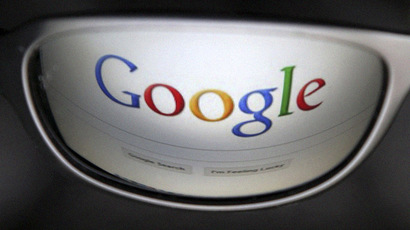Ex-Formula 1 boss sues Google over group sex pics

Former Formula 1 boss Max Mosley has taken court action against Google to stop the search engine from showing pictures of him at a sex party.
Mosley's lawyers argue that by keeping and publishing the images of Mosley, Google is misusing his private information – an argument they have been successful in pushing in French and German courts.
The 74-year-old sued the News of the World in 2008 for running the images, although the ruling did not apply to online republication. The photos are said to show him engaged in a “sadomasochistic session” with prostitutes in his London apartment.
READ MORE:'Right to be forgotten' is just latest of West's delusions
Mosley was awarded £60,000 in damages by the News of the World after the paper falsely accused him of taking part in a “sick Nazi orgy.” While Mosley admitted that an orgy took place, he denied that it was linked to anything related to fascism.
Google’s counsel argue the case should be thrown out, as the images were already public and had been viewed by more than one million people.
“We don’t know how [Mosley’s] privacy was somehow regained. There’s no continuing reasonable expectation of privacy; everyone is now free to publish,” Google’s lawyer, Antony White QC, said.
“The dam has effectively burst,” he added.
Additionally, he argued that Google never viewed itself as a publisher and is not in a position to "police" the internet.
But Mosley's legal representative, Hugh Tomlinson QC, argues that
Google was effectively a publisher because the images were
reproduced on its platform.
READ MORE:Make them forget: How ‘irrelevant’
news disappears from Google searches
According to Mosley's counsel, the case “seeks to compel Google to stop gathering and publishing images that the English high court decided in 2008 were unlawful in the landmark privacy case Mosley v News Group Newspapers.”
Last year, Google said it was “flooded” with European requests to remove links and images that would be deemed as “harmful” to the reputation of individuals, after it said it would give individuals the “right to be forgotten” online.
In June 2014, Google said it had received more than 12,000 requests to remove embarrassing or harmful information, although it is unclear how many requests have been successful.














